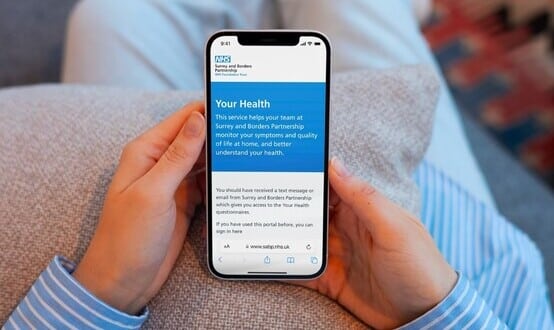Mental health IT systems frustrate staff and impact patients – CQC
- 25 July 2017

Poor IT systems directly impact patient treatment and frustrate staff in mental health services, according to the Care Quality Commission (CQC).
The CQC’s report, published 20 July, covered mental health services from 2014 to 2017 and said that inadequate technology and interoperability were causes for concern.
“Too many of these staff have voiced frustration about the clinical record systems that they have to work with”, said the report.
“Staff sometimes have to work with a confusing combination of electronic systems and paper, or with a number of different electronic systems because these systems ‘do not talk to one another’.”
The CQC inspected 54 mental health trusts and 221 independent mental health services.
The report specifically pulled out concerns with patient safety: “We have seen examples of crisis teams not being able to access records for patients taken to a health-based place of safety.”
“This problem had a real impact”, said the report, using up valuable staff time and meaning important information not communicated.
Norman Lamb, MP for North Norfolk and newly elected chair of Parliament’s Science and Technology Committee, was highly critical of the IT failings.
“I find it appalling that patient care is being compromised in a ‘twenty-first century’ health service because of a failure to modernise our IT systems.”
“We have an intolerable situation where some people who are experiencing a mental health crisis cannot get the right care, on a timely basis, because staff are unable to access clinical records.”
Often data entry into electronic records did not lead to the information being shared, but instead to burdensome data entry.
“Clinical staff often spent a high proportion of their working time entering information into electronic records”, the CQC said, “despite this effort, too often staff were unable to locate or retrieve information that others had recorded”.
Lamb said: “Clinical staff are also having to waste valuable time updating electronic systems as well as waiting for paper records to be retrieved. It is a completely dysfunctional way for a health service to operate.”
NHS Improvement announced last month it is trying to free up 36,000 man hours a year through automated data collection with all NHS trusts having their daily situation reports (SitRep) automatically collected by NHS Improvement from October 2017.
James Reed, chief clinical information officer at Birmingham and Solihull Mental Health NHS Foundation Trust, told Digital Health News that he would like to see the central data burden reduced.
“[Data] can only come from staff on the ground, and the more data that is requested from the centre, the more data entry there has to be.”
“We should be trying to reduce the data burden.”
A 2013 Challenging Bureaucracy report, commissioned by health secretary Jeremy Hunt, found that administrative staff spend up to 20 hours a week finding data for nationally-mandated returns and reports to regulatory bodies.
The report said that data collection costs each trust an average of £1.4 million a year, bringing the total yearly cost for the NHS to between £300 million and £500 million.
There was an especial criticism of care plans, the document that sets out how you will be treated, on both paper and electronic systems.
“Regardless of whether they were recorded on paper or in an electronic system, our inspectors were often critical of the quality of care plans.”
“We sometimes found that care plans were not personalised, did not cover all areas of need, did not fully take account of the patient’s strengths and wishes, and were not being kept up-to-date.”
Reed said the report is reflective of the transitional state of IT services in mental health.
“We’re in the middle of a journey towards digital. We’re in the middle of going from the old systems of paper records to the new world of digitally mature systems but we’re not there by any means.”
He also noted that “it would be nice to see some recognition, of the fact that the electronic systems we have, have definitely improved matters, things are better”.
For example, in his patch implemented clinical IT systems mean that risk assessments can be seen all over the city of Birmingham.
NHS England’s flagship digital initiative, the global digital exemplar programme, will also be hoping that the seven selected mental health digital exemplars can improve the situation.
The mental health GDEs will get £35 million split between them to be spent on various projects including apps, mobile access to records for staff and patient access.
On 31 May, 68% of core services provided by NHS trusts and 72% of those provided by independent mental health locations were rated as good, by the CQC.





2 Comments
It doesn’t help when the commissioning of Mental Health services is such a movable feast. Local contracts are frequently shifted between NHS provider organisations, third sector organisations and the private sector – all as a result of the Health and Social Care Act and CCGs being forced to put services out to tender by any willing provider.
What used to be comprehensive services delivered by one Mental Health Trust over a fixed geographical area are now often fragmented with providers from other areas taking on some aspects of services with third sector and private sector organisations picking up individual elements of a patient pathway.
In my local area CAMHS, substance misuse services, dementia services, prison MH services and adult psychology therapy services have all changed providers at least twice in recent years.
Each change necessitates data migration between organisations and each organisation has a silo inaccessible by other organisations for a range of technical, IG and political reasons.
Ageing IT and a lack of interoperability is an issue but simply digitising and buying new EPR systems won’t help much when the whole Mental Health eco-system is so fragmented and is now in a constant state of flux and crisis.
I don’t think this only applies to mental health trusts , all NHS users are frustrated by IT systems and wasting time all impinges on care … and then they get further frustrated when poor IT folk can’t instantly fix
Comments are closed.